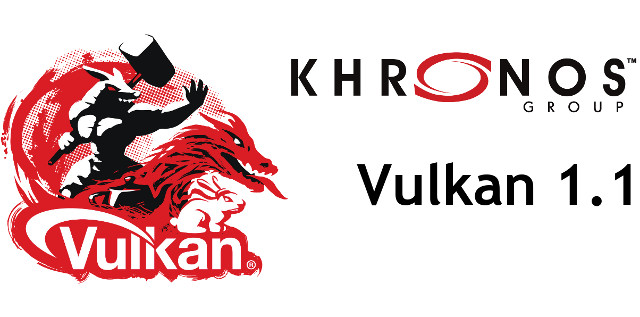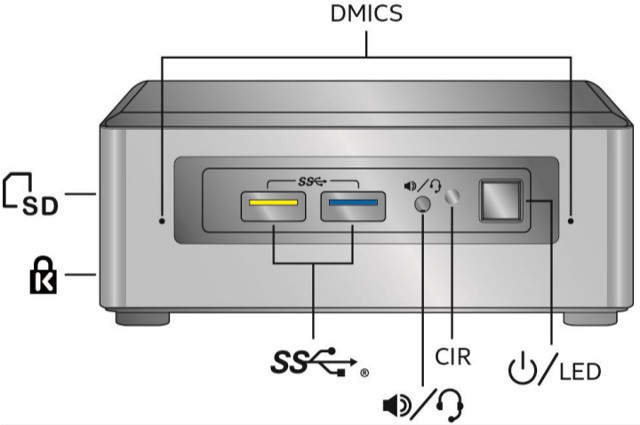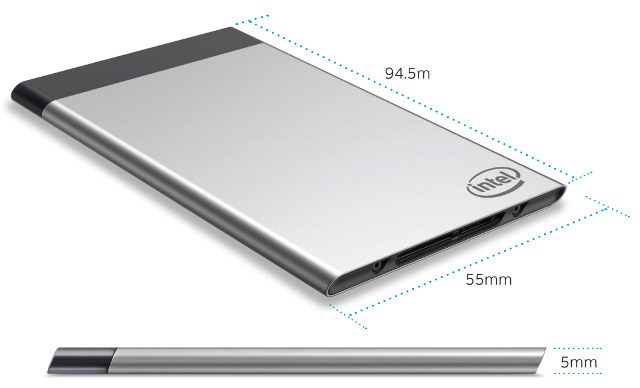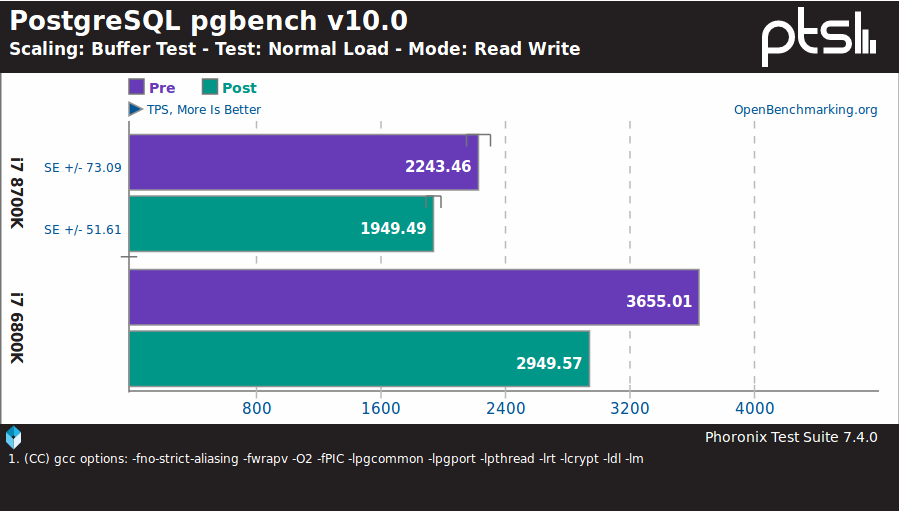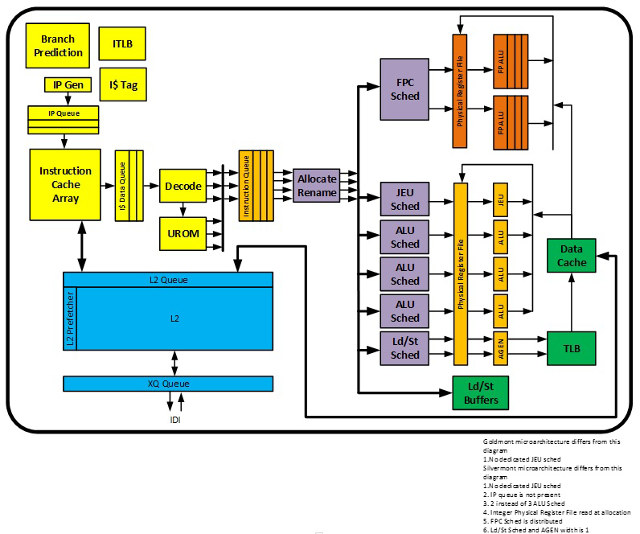The Khronos Group released Vulkan 1.0 specifications in 2015 as a successor of OpenGL ES, compatible with OpenGL ES 3.1 or greater capable GPU, and taking less CPU resources thank to – for instance – better use of multi-core processors with support for multiple command buffers that can be created in parallel. A year later, we saw Vulkan efficiency in a demo, since then most vendors have implemented a Vulkan driver for their compatible hardware across multiple operating systems, including Imagination Technologies which recently released Vulkan drivers for Linux. The Khronos Group has now released Vulkan 1.1 and the associated SPIR-V 1.3 language specifications. New functionalities in Vulkan 1.1: Protected Content – Restrict access or copying from resources used for rendering and display, secure playback and display of protected multimedia content Subgroup Operations – Efficient mechanisms that enable parallel shader invocations to communicate, wide variety of parallel computation models supported […]
Intel June Canyon (Gemini Lake) NUCs Now Up for Pre-order for $130 and Up
This morning, I was informed that Intel had now published product pages for June Canyon NUC kits, mini PC, and board powered by the company’s latest Gemini Lake processors with four models: Intel NUC 7 Essential NUC7CJYSAL – Mini PC with Windows 10 based on Intel Celeron J4005 dual core processor (4M Cache, up to 2.70 GHz) with 32GB flash, 4GB RAM Intel NUC Kit NUC7PJYH – Barebone mini PC with Intel Pentium Silver J5005 quad core processor (4M Cache, up to 2.80 GHz) Intel NUC Kit NUC7CJYH – Barebone mini PC with Intel Celeron J4005 dual core processor (4M Cache, up to 2.70 GHz) Intel NUC Board NUC7PJYB – Board based on Intel Pentium Silver J5005 quad core processor (4M Cache, up to 2.80 GHz) We’ve already published Intel June Canyon NUCs’ specifications, so I won’t go through it again in this post, and instead I looked for places […]
Intel Gemini Lake NUC7CJY/NUC7PJY Kits and Mini PC Specifications Released
Based on Intel NUC 2018/2019 roadmap published, we expected the first Intel Gemini Lake NUC mini PC to launch right at the end of 2017, but there’s been some delays. Since then we’ve learned Gemini Lake mini PC from third parties should launch around the end of March / beginning of April, and the official Intel GLK NUCs might launch around that time frame, or maybe a little earlier, because today, I’ve been informed the specifications for NUC7CJY/NUC7PJY kits and mini PC had been released on Intel website. Both variants have basically the same specifications expect NUC7CJY comes with a Celeron processor, and NUC7PJY with a Pentium Silver processor: SoC Intel NUC Kit NUC7CJYH / Intel NUC Mini PC NUC7CJYS – Dual core Intel Celeron J4005 processor @ 2.0 GHz / 2.70 GHz (Turbo) with 4MB cache, Intel HD Graphics 600; up to 10 TDP Intel NUC NUC7PJYH – Quad […]
Intel Compute Cards Review – Windows 10 and Ubuntu 17.04 on CD1C64GK, CD1P64GK and CD1M3128MK
The Intel Compute Stick revolutionized the mini PC market through the introduction of x86 based processors making Windows available as an OS option. However, for Intel the biggest target market turned out to be business rather than consumer with digital signage being a key user. As a result Intel have responded with the introduction of the Intel Compute Card. So far they have released four versions of card: and they they differ from compute sticks by no longer being standalone mini PCs but dependent on a dock or host device. The card itself is relatively small with a footprint slightly larger than a standard credit card: and is distinguished by the back being printed with details about the card including the model: The lack of emphasis on the consumer market is also evident in the rather unobtrusive plain packaging: On the end that inserts into the dock or host device […]
FOSDEM 2018 Open Source Developers Meeting Schedule
FOSDEM (Free and Open Source Software Developers’ European Meeting) occurs every year on the first week-end of February, where developers meet for two days discussing about open source software projects. FOSDEM 2018 will take place on February 3-4 this year with 652 speakers, 684 events, and 57 tracks, an increase over last year 608 speakers, 653 events, and 54 tracks. There will be 8 main tracks namely: Community, History, Miscellaneous, Performance, Python, Security and Encryption, Space, and Global Diversity CFP Day. There will also be 33 developer rooms, and since the full schedule is now available, I’ll make a virtual schedule mostly based on sessions from the Embedded, mobile, and automotive, Hardware Enablement, and Internet of Things devrooms. Saturday 3, 2018 09:50 – 10:15 – Turning On the Lights with Home Assistant and MQTT by Leon Anavi In this presentation you will learn the exact steps for using MQTT JSON […]
Companies Address Concerns related to Speculative Execution Exploits: Meltdown and Spectre
Yesterday, news surfaced about a “bug” in Intel processors that could be fixed at the operating system level at the cost of a decrease in performance for some tasks, from a typical, and barely noticeable 5% hit, to a more consequent 30% hit for some specific tasks, and as we discussed yesterday I/O intensive tasks are the most impacted by the changes. While Intel (and Arm) are impacted, AMD claims not to be, and the issue was reported by major news outlets and likely impacting the stock price of the companies with Intel stock losing 3.39%, and AMD stock gaining 5.19%, so obviously every company felt the need to answer, starting with Intel’s response to security research findings: Recent reports that these exploits are caused by a “bug” or a “flaw” and are unique to Intel products are incorrect. Based on the analysis to date, many types of computing devices […]
Intel Hardware Security Bug Fix to Hit Performance on Windows, Linux…
Many security bugs can be fixed without performance penalty , but according to reports Intel processors have a hardware bug – whose details have not been disclosed yet (embargo) – that seems to affect all operating systems including Windows, Linux, Mac OS, etc…, and the fix may lead to significant performance hits for some tasks. We know a bit more thanks to the Kernel Page Table Isolation (KPTI) patch for Linux that enables the fix/workaround with X86_BUG_CPU_INSECURE feature. The fix used to be called KAISER, and there’s an explanation on LWN about “hiding the kernel from user space” about the issue: On contemporary 64-bit systems, the shared address space does not constrain the amount of virtual memory that can be addressed as it used to, but there is another problem that is related to security. An important technique for hardening the system is kernel address-space layout randomization (KASLR), which randomizes […]
More Details about Goldmont Plus Microarchitecture (used in Gemini Lake Processors)
2017 was the year of systems based on Intel’s low power, low cost Apollo Lake processors, and provided Intel does not suddenly decide to cancel yet another product, they will be replaced by Gemini Lake processors in 2018. The former is based on Goldmont microarchitecture, while the latter relies on the updated Goldmont microarchitecture. Intel has now released a document entitled “Intel 64 and IA-32 Architectures Optimization Reference Manual” where you’ll find more gritty technical details about Goldmont Plus in chapter 16 “SOFTWARE OPTIMIZATION FOR GOLDMONT PLUS, GOLDMONT, AND SILVERMONT MICROARCHITECTURES”. The enhancements over Goldmont include: Widen previous generation Atom processor back-end pipeline to 4-wide allocation to 4-wide retire, while maintaining 3-wide fetch and decode pipeline. Enhanced branch prediction unit. Improved AES-NI instruction latency and throughput. 64KB shared second level pre-decode cache (16KB in Goldmont microarchitecture). Larger reservation station and ROB entries to support large out-of-order window. Wider integer execution […]


